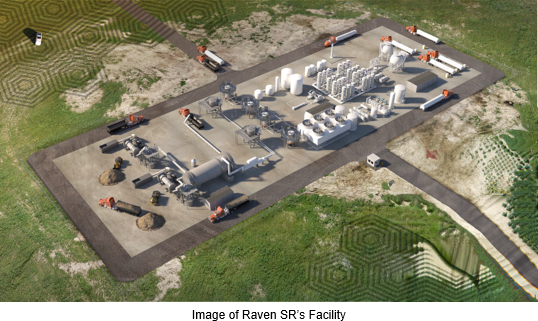All Nippon Airways (ANA) has signed a Memorandum of Understanding (MOU) with ITOCHU Corporation and Raven SR Inc. for the production and procurement of sustainable aviation fuel (SAF).
Raven SR, which owns patented Steam/CO2 Reforming technology for converting various types of local waste, such as green waste, municipal solid waste, organic waste, and methane from municipal solid waste, into renewable hydrogen and clean fuels, is set to begin commercial hydrogen production in the first quarter of 2024.

ANA said Raven SR plans to begin production of SAF in California by 2025, with annual incremental increases to 200,000 tons by 2034.
The supply will be produced by Raven SR at facilities planned for major global markets in the US and Europe.
"As part of our climate transition strategies, ANA is dedicated to being an industry leader with our environmental commitments. This announcement with ITOCHU and Raven SR will be of great importance and support our mid- and long-term carbon reduction goals," said Hideo Miyake, executive vice president at ANA overseeing Procurement.
"We look forward to collaboratively working together on this important business imperative of being environmentally conscious and developing local solutions that are beneficial to reducing our carbon footprint."
Matt Murdock, CEO of Raven SR, noted that the agreement for long-term SAF supplies would foster growth for Raven SR on a global basis and help ANA with its carbon reduction commitments.
"We expect that our agreement with ANA to supply SAF in strategic markets globally will enable buying local fuel produced from local waste. We see growing interest in such efficiency and circularity in renewable fuel distribution for aviation and other transportation sectors," Murdock added.
Global SAF supply currently comprises 0.03% of total jet fuel consumption due to a limited supply of feedstock like used cooking oils and allows.
The General Assembly of the International Civil Aviation Organization (ICAO) has set a goal of achieving net zero CO2 emissions from aircraft by 2050.
ANA noted that to meet this target, the airline industry will be required to reduce or offset 15% of its emissions from 2019 levels starting in 2024.
As the trend towards decarbonization in the airline industry continues to gain momentum, it is expected that the demand for SAF will also increase in Japan.
ANA said Raven SR's non-combustion technology offers a sustainable solution for the reliable and long-term production of renewable fuels.
"By utilizing local and regional waste, Raven SR's distributive model produces fuels closer to market demand, leading to greater decarbonization and addressing environmental issues caused by waste in specific regions ... Raven SR's use of waste as feedstock for its SAF production is expected to provide both stabilize the supply and pricing of SAF," it added.
The ANA Group has set a goal of replacing at least 10% of its jet fuel with SAF by 2030 and of becoming carbon neutral by 2050.